Jtti US dedicated server is located in the Los Angeles T3+ data center. The package comes standard with 3 IPs, exclusive 50M CN2 bandwidth, unlimited traffic, free 20G defense when you place an order, multiple operating systems are optional, bandwidth and IP support custom expansion, and support devices custom made.
Let's take a look at the Jtti US dedicated server package configuration:
Jtti US dedicated server evaluation situation:
Test machine configuration: E5-2660 V2, 16G
First look at the delay effect of the local Ping, as shown below:
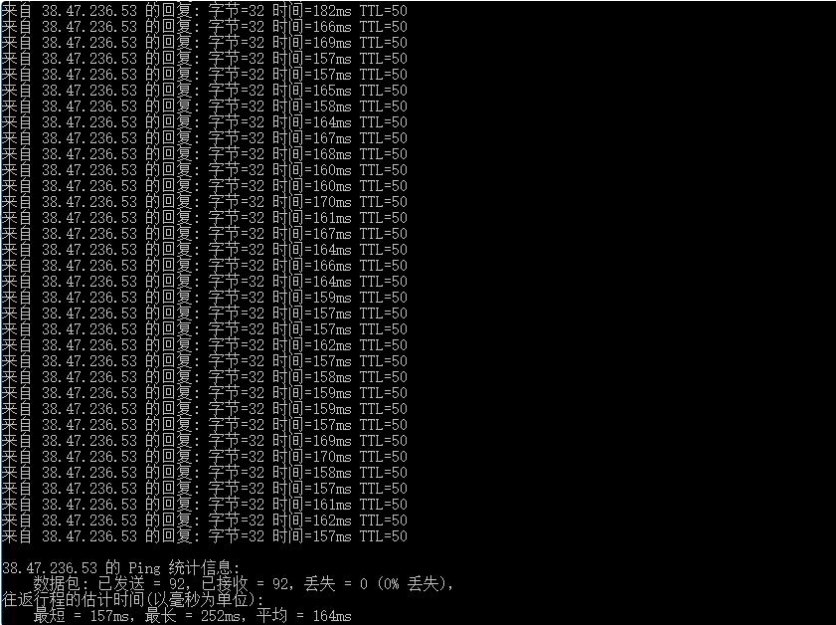
It can be seen that the average delay of the local Ping is 164ms, which is quite good for the US computer room, and the network is very stable without packet loss.
Let's take a look at the average delay of the three-network Ping across the country, as follows:
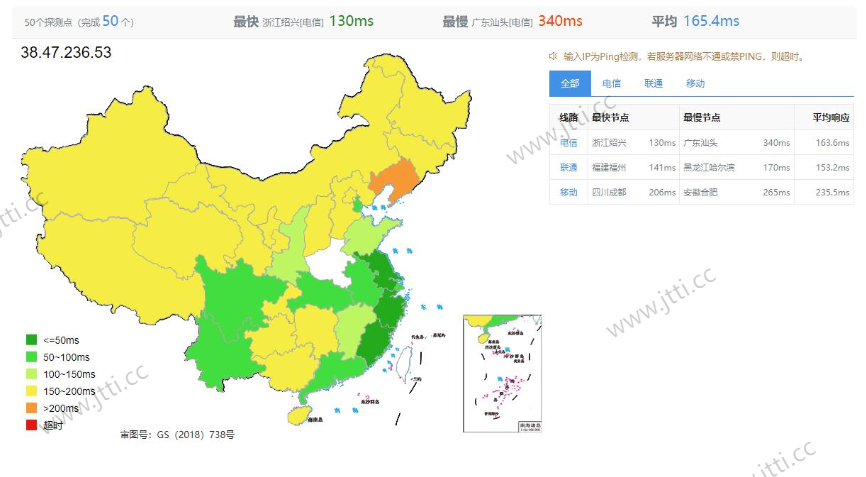
It can be seen that the average delay of the national three-network Ping is about 165ms, which is similar to my local area. The delay of the telecom network is about 163ms, the delay of the Unicom network is about 153ms, and the delay of the mobile network is about 235ms.
We then use third-party tools to test the stability of node networks around the world, as follows:
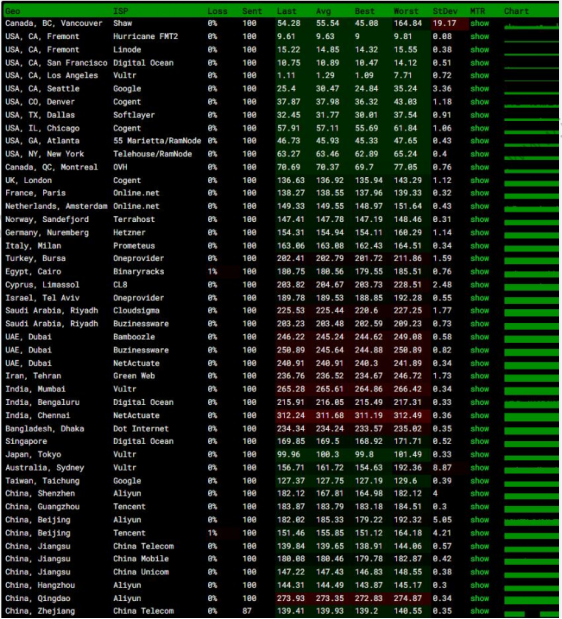
It can be seen that the stability of the network around the world is quite good. Whether it is domestic or foreign, there is basically no packet loss on a node, and there are very few such stable servers.
Let's take a look at the outbound routing lines and return routing lines of Jtti's US independent server triple network.
Telecom outbound routing:
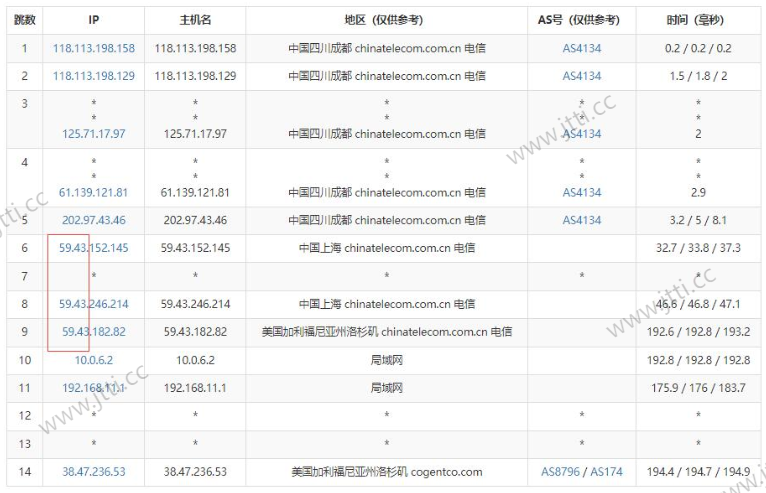
Telecom's outbound routing is to go out from the Shanghai network port, and then directly connect to the Los Angeles computer room, and use the CN2 GIA line of 59.43.
China Unicom outbound route:
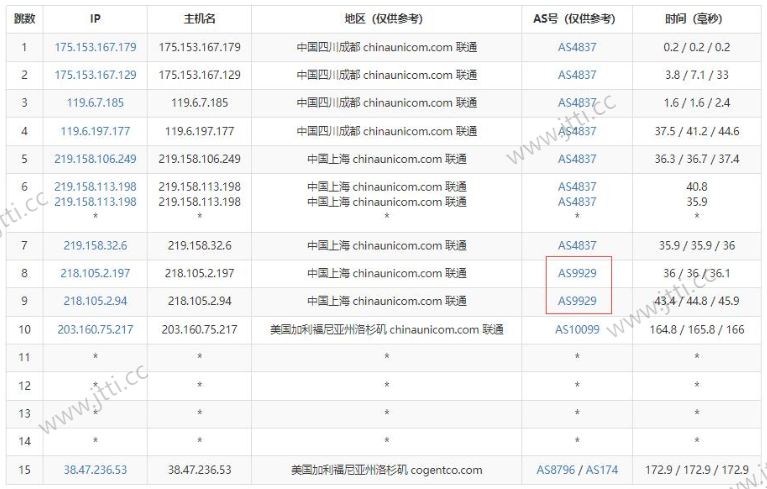
China Unicom's outgoing route is to go out from the Shanghai network port, and then directly connect to the Los Angeles computer room, using the AS9929 China Unicom optimized line.
Mobile outbound routing:
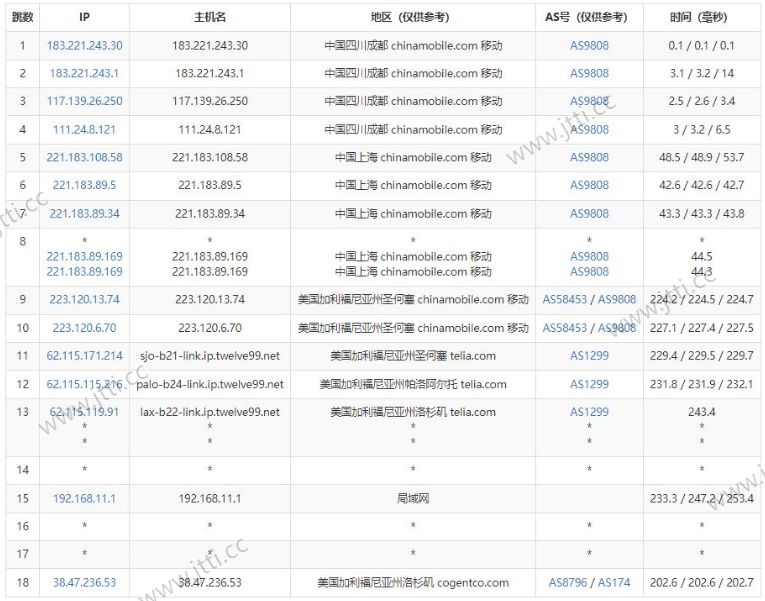
The mobile outbound route goes out from the Shanghai network port, passes through the San Jose and Palo Alto nodes, and then arrives at the Los Angeles computer room, using the mobile CMI line.
Next, let's take a look at the situation of the three-network backhaul routing line.
Telecom backhaul routing:
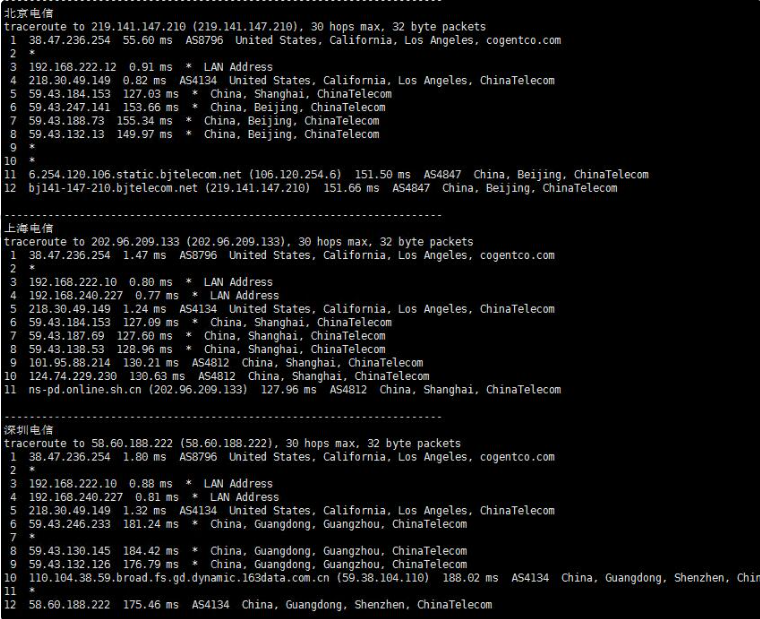
The telecom backhaul route is directly connected to the domestic network port, and the CN2 line of 59.43 is used.
China Unicom return route:
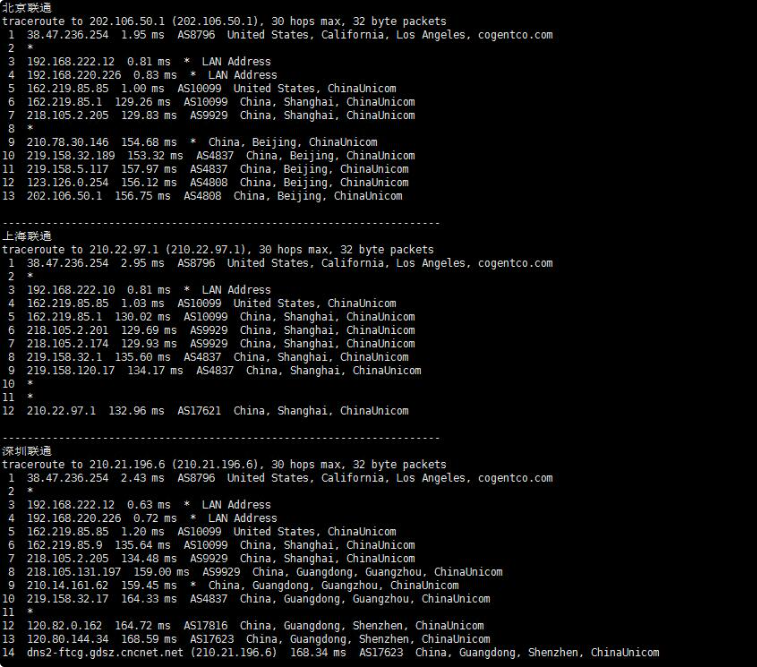
China Unicom's return route is directly connected to the domestic network port, and the AS9929 optimized line is used.
Mobile Backhaul Routing:
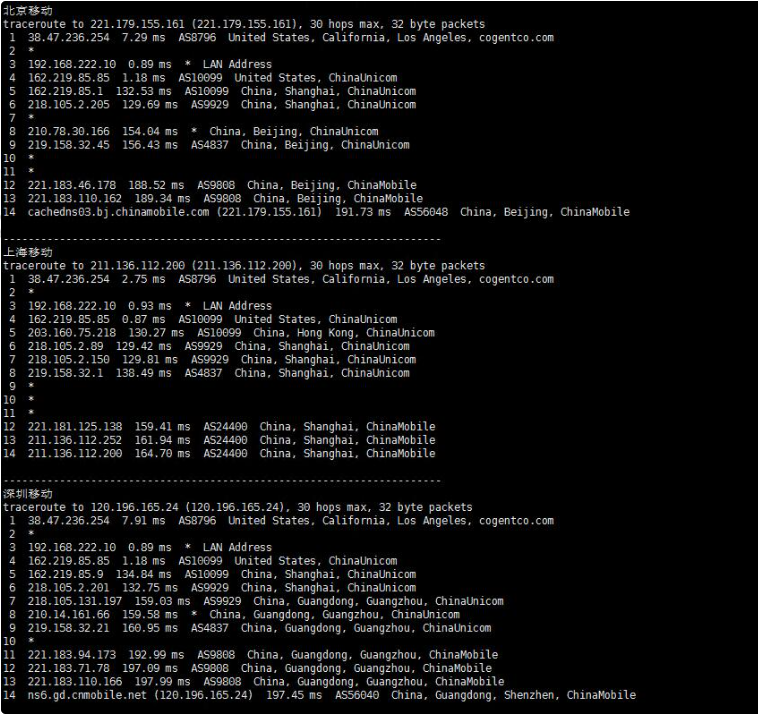
The mobile backhaul route is directly connected to the domestic network port from the Los Angeles computer room, using the China Unicom AS9929 optimized line.
So summarize the downhaul and backhaul routing: Telecom two-way CN2 line; China Unicom two-way AS9929 optimized line; China Mobile outbound CMI backhaul AS9929 line. Generally speaking, Jtti's US dedicated server line is quite good.
Let's take a look at the server performance and download speed, as follows:
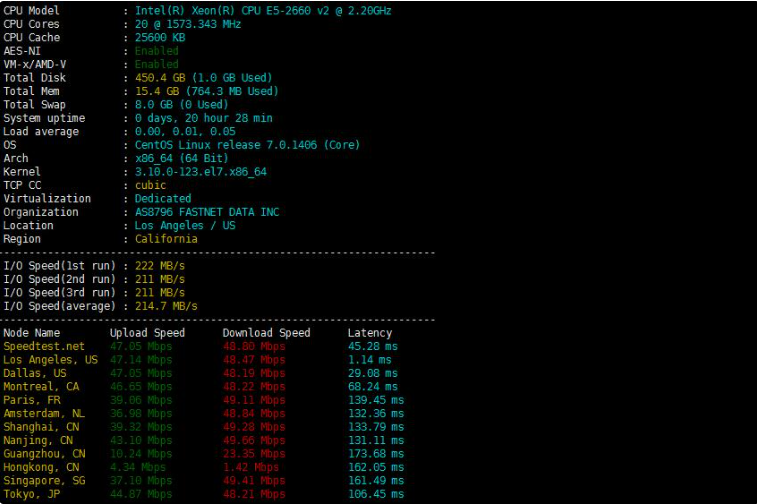
It can be seen that the server uses a 2.2GHz processor, and the disk I/O is about 214MB/s, and the performance is still good. The upload and download speeds of the server basically run at 50Mbps, which is consistent with the bandwidth written on the package.
The above is the introduction to the evaluation of tti’s US independent server. Overall, this US independent server network is quite good. It is very stable both at home and abroad. Users who need it can refer to it according to their own needs.
Note: The article comes from a third-party webmaster evaluation.

 EN
EN
 CN
CN








